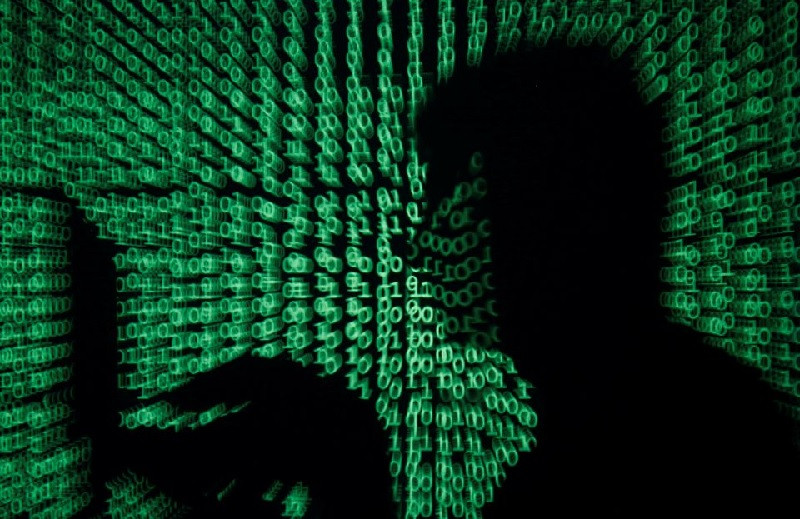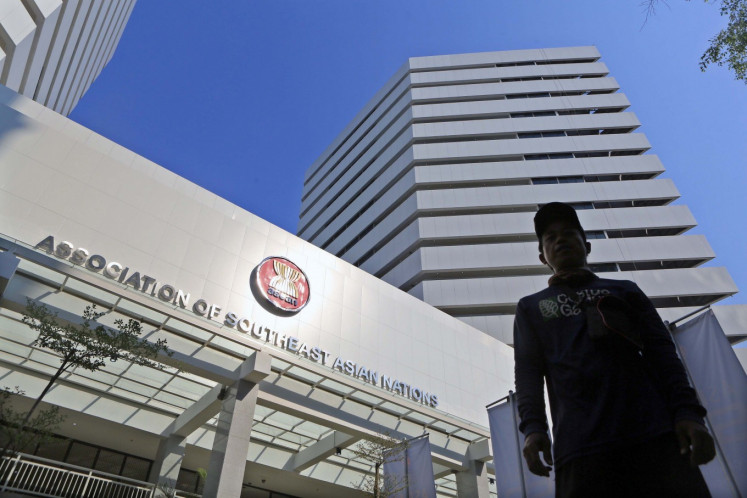Popular Reads
Top Results
Can't find what you're looking for?
View all search resultsPopular Reads
Top Results
Can't find what you're looking for?
View all search resultsSafe digital elections
Even more problematic than the ITE Law itself is the architecture of power that enabled its passage and perpetuates its use.
Change text size
Gift Premium Articles
to Anyone

The 2024 general election will not be the first in which candidates conduct online campaigns to reach out to voters, who will, in turn, use social media to scrutinize their aspiring representatives and debate their political platforms.
While it may not be our first internet-heavy election, there is growing concern that the upcoming “celebration of democracy” will be less free and, thus, less fair, following the release of a bleak report by internet freedom watchdog SafeNet.
The report, published last month, highlights a rising trend of digital attacks on government critics, mainly journalists, activists, media organizations and civil society groups. In 2022, SafeNet recorded at least 302 digital attacks targeting some 55 activists and 50 media workers. In 2020, it only recorded 147 such incidents.
As most of these attacks are believed to be politically motivated, the organization gives the grim prognosis that they will likely increase further ahead of the 2024 polls.
Indonesian cyberspace has never been a safe space for all, certainly not since the 2008 enactment of the Electronic Information and Transactions (ITE) Law, the infamous cyberlaw that has been used to send many to jail for defamation for simply expressing their opinions online, a civil right protected unequivocally by the Constitution.
But even more problematic than the ITE Law itself is the architecture of power that enabled its passage and perpetuates its use. For decades, the law has been weaponized by the powers that be to silence critics, including their political opponents, during campaign and election periods, prompting civil society groups to push tirelessly for the draconian cyberlaw to be revoked.

The ITE Law remains an effective tool of repression, but given its notoriety, it is no surprise that the elites have brought in other forms of repression, including informal censorship tactics such as digital attacks, to achieve the same goals.
In recent years, as recorded by SafeNet, we have seen many cases of hit-and-run digital attacks on people critical of government policies. The expansive repertoire of digital repression includes the hacking of personal social media, email or bank accounts; wiretapping; phishing; doxing; DDoS attacks; and many other underhanded methods.
We are, not least, concerned about the rise of attacks on media organizations. These cyberattacks are clearly meant to stifle free speech and could be more damaging than the ITE Law because it is harder to fight back against a shadowy adversary.
Victims of digital attacks have reported their cases to the police, but none has been resolved so far, fueling speculation that state actors, or even state institutions, are complicit in one way or another.
It is exceedingly difficult to pinpoint those responsible for the attacks, given the anonymous nature of digital assaults and the fact that they are sporadic and do not always appear to represent the interests of the current political regime.
There is a justifiable fear that some members of the political elite will employ hackers-for-hire to further their interests for the next election, the same way some hire armies of social media lackeys to attack their opponents. If this is the case, then the intensifying conflicts between elites ahead of the 2024 general election could lead to more incidents of politically motivated cybercrimes.
The government has the obligation to ensure that the upcoming elections run peacefully both online and off. We have doubts, however, that it has the capacity, or willingness, to address cyber-transgressions properly.
We therefore suggest that politically engaged citizens start taking all the measures needed to keep themselves digitally safe.









